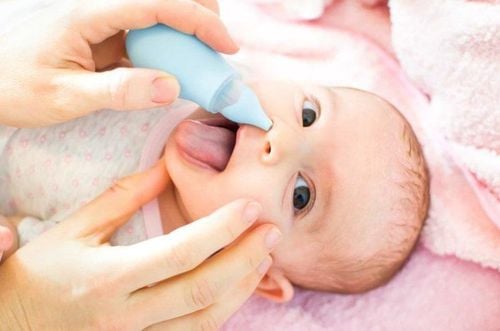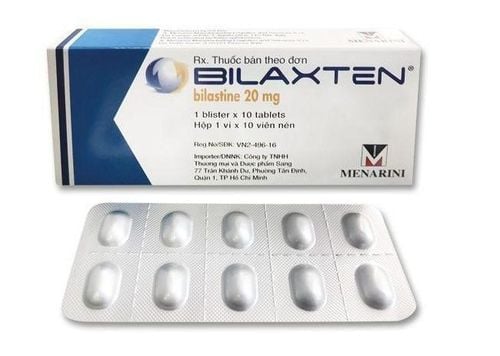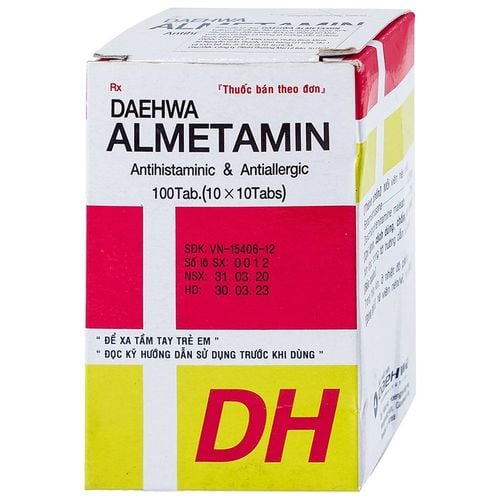Article consulted by Pharmacist Nguyen Van Thang - Department of Pharmacy - Vinmec Times City International General Hospital
Chlorpheniramine 4mg is used to treat allergic rhinitis, runny nose, and nasal congestion. In addition, it is also used to treat other allergic symptoms such as hives, contact dermatitis, itching, food allergies, insect bites, allergic conjunctivitis, and Quincke's edema.
1. What is the use of Chlorpheniramine 4mg?
Chlorpheniramine 4mg is used to treat allergic rhinitis, runny nose, nasal congestion, and sneezing. Besides, it is also used to treat other allergic symptoms including hives, contact dermatitis, itching, food allergies, insect stings, allergic conjunctivitis, and Quincke's edema.
2. How to use Chlorpheniramine 4mg
Chlorpheniramine 4mg is taken orally. It can be taken with or without food. If you experience stomach upset when taking the medicine on an empty stomach, you can take it with food.
Dosage:
- Adults and children over 12 years old: 1 tablet every 4 to 6 hours. The maximum dose is 6 tablets/day (equivalent to 24mg/day).
- Elderly people may be more susceptible to adverse effects, so a lower dose should be considered.
- Children from 6 to 12 years old: take 1/2 tablet (2mg) every 4 to 6 hours. The maximum dose is 3 tablets/day (equivalent to 12mg/day).
Note: For appropriate dosage, patients should consult a specialist or healthcare professional.
What to do if I miss a dose:
If you miss a dose of Chlorpheniramine 4mg, take it as soon as you remember. However, if it is almost time for the next dose, skip the missed dose and continue with the next dose as scheduled. Do not double the dose to make up for the missed dose.
3. Side Effects
When using Chlorpheniramine 4mg, you may experience side effects such as drowsiness, sedation, dry mouth, dizziness, nausea...
When experiencing or suspecting side effects of Chlorpheniramine, stop using the medicine and inform your doctor or go to the nearest medical facility for appropriate treatment.
4. Contraindications for Chlorpheniramine 4mg
Hypersensitivity to chlorpheniramine or any excipients of the drug.
Prostatic hypertrophy (the drug increases the risk of urinary retention).
Closed-angle glaucoma.
Bladder neck obstruction.
Gastric outlet obstruction, duodenal obstruction (the drug increases the risk of duodenal obstruction).
During an acute asthma attack (worsens difficulty breathing, increasing the risk of respiratory failure).
Breastfeeding women (as it may reduce milk supply).
Newborns and Preterm Infants.
Patients who are taking monoamine oxidase inhibitors (MAOIs) within 14 days of the planned chlorpheniramine treatment (because these drugs can prolong and enhance the side effects of chlorpheniramine).
Other precautions:
Concomitant use with alcohol or other sedative-hypnotic drugs should be avoided as it may enhance the central nervous system depressant effects of chlorpheniramine 4mg.
Avoid using chlorpheniramine 4mg with phenytoin (a medication for epilepsy/seizures) as it inhibits phenytoin metabolism and can lead to phenytoin toxicity.
Use during pregnancy only when clearly needed. Use should be avoided during the third trimester of pregnancy.
Long-term treatment with this drug may increase the risk of dental caries.
Avoid operating machinery, driving, or doing other tasks that require concentration while using this medication.
Here are some important information about Chlorpheniramine 4mg. Before using it, patients should research carefully and follow the doctor's instructions for the best treatment results.
To arrange an appointment, please call HOTLINE or make your reservation directly HERE. You may also download the MyVinmec app to schedule appointments faster and manage your reservations more conveniently.













